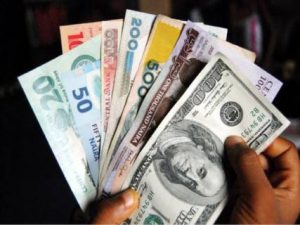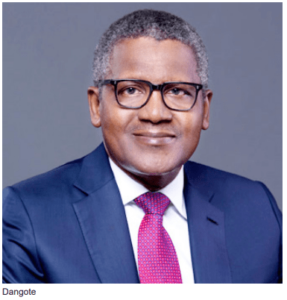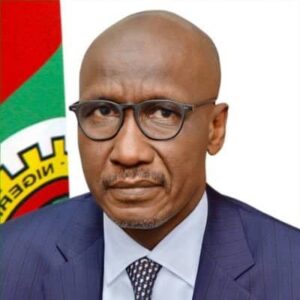Covid-19 may have severe implications on Nigeria’s economy-Ahmed

Minister of Finance, Budget and National Planning, Mrs Zainab S. Ahmed, has said the global economic downturn caused by coronavirus may have adverse effects on Nigeria’s economy.
The Minister made disclosure in her recent presentation on the current state of the Nigerian economy to the leadership of the 9th National Assembly.
She explained that prior to the spread of the Covid-19, that the oil price was on decline and the country’s economy was already “fragile, vulnerable and deteriorating” according to a statement by Yunusa Tanko Abdullahi, Special Adviser, Media and Communications to the minister.
Viewing implications of the global economic downturn for the country, she said the global economic downturn caused by the Coronavirus pandemic has forced international oil prices to plunge to as low as $22/b on the OPEC+ Price Wars (Brent recovered slightly to c.$30/b on US promises of intervention).
Assessing how the issues caused by the pandemic have transmitted what is now seen as the international crisis to the Nigerian domestic environment, Ahmed pointed to the disruption to global supply/output chains resulting in weak input demand and low commodity prices.
According to her, international travels and trade have been severely disrupted, demand for goods and services is deteriorating pursuant to ‘social distancing’ policies and there have been significant erosions across financial markets as uncertainty rises, leading to capital flows reversals from emerging and frontier markets such as Nigeria.
The crisis, in the words of Ahmed, has been: “Increasing pressure on the naira and foreign reserves as the crude oil sales receipts decline and the macroeconomic outlook worsens. Central Bank of Nigeria (CBN), just as in other countries, are resorting to quantitative easing, by reducing interest rates, to support economic activity and governments announcing fiscal stimulus plans for healthcare and social safety nets.”
Speaking further, the Minister looked at a number of issues such as fiscal risks arising from the emerging global economic crisis; international responses to global economic crisis; Nigeria’s current economic realities and challenges; proposed integrated policy framework; and achieving sustainable, inclusive & diversified growth and development.
Highlighting international responses to the global economic crisis, the Coronavirus and oil price crises, she mentioned European Central Bank (ECB) €750 billion pandemic emergency purchase programme Packaged to complement €120 billion of additional asset purchases by the ECB.
She disclosed that Greek bonds would be included in the bank’s asset purchases for the first time and that ECB is to ease collateral standards to make it easier for banks to raise funds.
Alluding to what obtains in the United States, Ahmed noted that US Republicans have proposed $1trillion economic stimulus package, recovery rebates for low income individuals and couples, loans to small and medium enterprises (SMEs) for salaries, mortgage payments, health care, all these including loans and fiscal support to airlines and distressed industries, etc.Also looking at the United Kingdom (UK), she further noted that the government has announced unprecedented fiscal stimulus plan to cushion the impact of the crisis. The government is to pay 80 per cent of citizens wages for the first time (£10bn), and 80 per cent of the wages of workers whose jobs face the axe will be paid by the government, up to a maximum of £2,500 a month, and corporate tax holidays (£30billion) with the suspension of Value Added Tax (VAT) for a quarter of the fiscal year, unlimited 12-month interest-free loans for businesses, £7 billion of additional welfare support, including an increase in universal credit payments.
There is also £1 billion of support for renters, and Self-employed workers to get the equivalent of statutory sick pay.
Ahmed, drawing attention to the Nigerian proposed integrated policy framework, also stated: “The framework is to be complemented by a fiscal stimulus package to cushion the impact of the crisis on the most vulnerable individuals and communities, financed by concessional borrowings as well as fiscal policy reforms to rationalise tax expenditures, implement the Finance Act, 2019 and propose a Finance Bill, 2020 and other key economic-related laws to institutionalise the reforms.”
On the fiscal stimulus package, the key proposals include re-introducing 2012 corporate tax (exemption of profits) order granting job-creation tax rebates for employers; accelerating construction of over 700km of roads and bridges under the road infrastructure tax credit scheme; promoting consumer-spending, fiscal strategies and policies; accelerating ease of doing business-related fiscal reforms.
Also speaking on review of fiscal incentives, the Honourable Minister said the fiscal policy coordination is to review sectors that are eligible for pioneer tax holiday incentives under IDITRA; review of fiscal incentives under the national automobile policy; review of process and approvals of import duty exemption certificates; tax expenditure studies and evaluation of a current suite of fiscal incentives.
Apart from also talking about the Finance Act 2019 implementation, she further raised the point about key issues and challenges in achieving sustainable, inclusive and diversified growth and development.
She said the key issues and challenges, in her views, are fiscal dependencies on oil revenues (downside risks for oil production and international oil price volatility); prioritising expenditure (especially investments in infrastructure and human capital against fiscal risks from subsidies); and managing inflationary pressures amid faltering growth.
Addressing the impact of external developments (e.g. COVID-19, oil price decline, global trade tensions, African continental free trade agreement, etc.), and key execution priorities, Ahmed also considered stimulation of economic activity to create jobs and increase household consumption; prioritising investments in critical infrastructure and human capital development to unlock latent growth the potential of Nigerians (especially our Youth); accelerating the recovery in Gross Domestic Product (GDP) growth and stemming inflationary pressures; raising revenues and resources to finance critical expenditure, service debt and meet other obligations; increasing oil and non-oil revenues to finance priority capital and recurrent expenditures; and enhancing fiscal consolidation to rebuild fiscal buffers and increase resilience against fiscal shocks.
The Executive, according to the minister, seeks the support and cooperation of the Senate and House of Representatives to meet the emerging national emergency posed by COVID-19 and the oil price decline.
“The Executive’s renewed partnership with the 9th National Assembly will be critical in our efforts to weather the global economic crisis and reposition the Nigerian economy for sustainable, inclusive and diversified growth / development,” she concluded.









